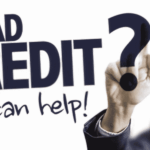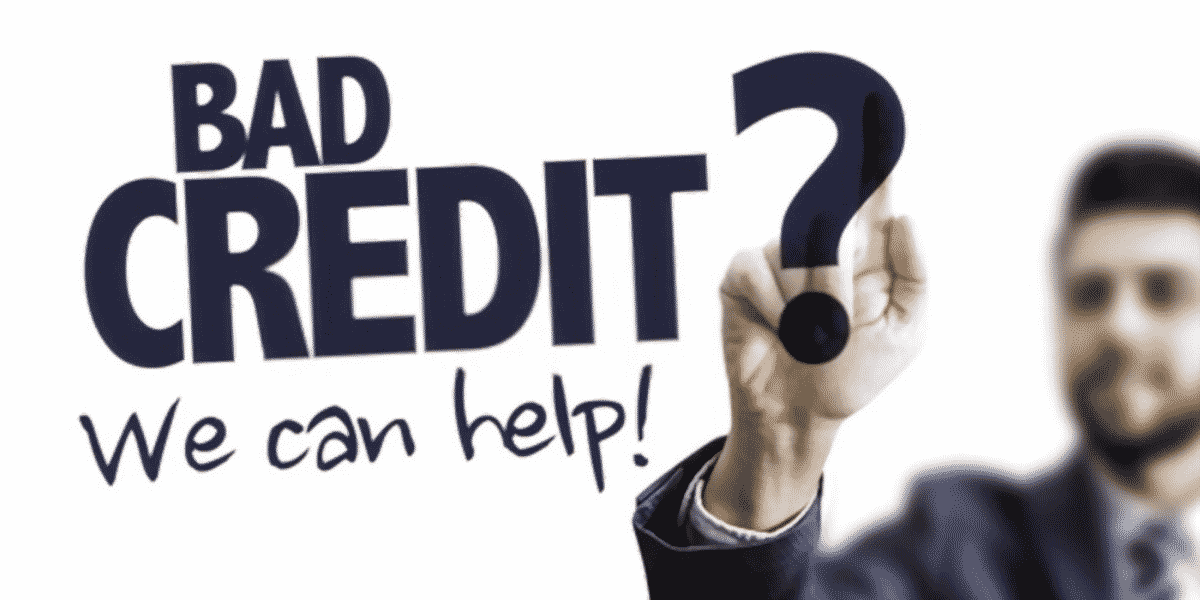Bad credit affects millions of Americans and many of them don’t know how to get out of the hole. Having bad credit can prevent you from getting home loans, car loans, an apartment, and could even bar you from getting certain types of jobs. People with bad credit end up paying higher interest rates on loans, as well. Needless to say, bad credit could make your financial life much harder.
There are ways for people to repair their credit, even if they are having trouble keeping up with their debt. Here’s how you can start over and rebuild your credit, even if your credit score is currently in the dumps.
How To Repair Your Credit If You Have Bad Credit
-
Get your credit reports and read them in detail.
Your credit report has all the information you need to start repairing your credit now. It’ll include your payment history, as well as any items that are past due, in default, or in collections.
There are three major credit bureaus in the United States: Equifax, Experian, and TransUnion. All three of these bureaus are required by law to provide you with a free credit report once per year. If you’re ready to start repairing your credit, then get all of these reports and read them.
Without reading your credit report in detail, you can’t possibly know what is affecting your credit score. The biggest problems that you might find on your credit report are items in collections, items in default, past due items, missed payments, and high utilization ratios on your credit cards.
Other issues that can affect your credit score drastically are tax liens, foreclosures, and bankruptcies. However, these are almost never a surprise to anyone. If you unexpectedly find these items on your credit report, or any other item that you don’t recognize, then it’s time to start the dispute process.
-
Dispute any items on your credit report that you don’t recognize.
Credit bureaus are run by people who get information from other people who work for loan servicers and lending institutions. For this reason, it’s not uncommon for people to have items on their credit report that should not be there.
Typically, these amount to clerical errors or mistaken identity. If you see anything that shouldn’t be on your record, it’s time to start the dispute process. Before you do, we recommend that you contact the loan servicer and ask them about the loan in question. They should be able to confirm whether or not the loan belongs to you, and if it doesn’t, then you can start the dispute process with the credit bureau with confidence that it will eventually be removed.
However, you may find debt on your credit report which DOES exist in your name, even though you may have no recollection of taking out that debt! This is a tell-tale sign of identity theft, and in this instance, it’s time to take action. Contact the credit bureaus that are reporting the fraudulent debt and have them begin the dispute process. In the meantime, ask them to freeze your credit so that no more loans can be taken out in your name.
-
Settle any items in default or in collections.
Items in default or collections can have a major negative effect on your credit score. As a result, it’s important to make sure that you get the debt settled right away.
Settling the debt does not necessarily mean making payments toward it! Making those payments won’t make any difference to your credit score as you’ve already got a black mark on your report. Instead, you want to make sure that you have an agreement with the owner of the debt. You’ll have to negotiate these items with the lender by calling them directly. If an item is in collections, it means that the original lender is no longer servicing the debt and you’ll have to go to the collections agency that is responsible for collecting the money.
In general, companies would rather get some of the money back rather than none, which gives you some room in negotiations. They’re generally understanding of a difficult financial situation and simply want to get as much of their money back as possible. By negotiating with the agency you may be able to reach an agreement to pay off the debt for less than you owe.
You may be able to get some of these items removed by asking the creditor, but in general, items in default or items that go into collections will stay on your credit report even after you settle them. They go away after 7 years, though, so they won’t be around forever, and the more time that passes from the original date of delinquency, the less weight it carries.
-
Calculate the remaining debt that you have.
Now that you understand the contents of your credit report, it’s time to get an estimate of how deep in debt you really are. Your credit report will also have some important information about your debt balances. They may not be 100% accurate, but that’s okay: simply contact the lender responsible for the debt and they will be more than happy to tell you how much you owe them.
Tally up all your debt and see how much you owe. You can only move forward when you know exactly what you owe. From here, it’s time to make a plan to pay it off.
-
Make a plan to pay off your remaining debt.
Paying down your debt is the next step to improving your credit score. Your credit score is based in large part on your payment history and the amount of debt you owe. By creating a good payment history and reducing your overall debt burden, you will see positive changes in your credit score that add up over time.
One popular strategy is called snowballing. Made popular by financial guru Dave Ramsey, snowballing your debt is when you pay the minimum payments on all your debt except for the smallest balance, which you put as much money into paying off as possible. Once that balance is done, you move onto the next smallest balance. Keep repeating this until all your debt is paid off. This process can take years for some people.
But, sometimes the debt you owe is simply too much. Your interest rates might be too high, or you might not be able to afford even the minimum payments. Don’t worry: you have options.
-
Options to help you pay down debt:
-
this is when you and the lender agree to a new loan with different terms, usually with a different payment schedule and interest rate. This can be a good option if your payments are high due to a very high interest rate.
-
Debt consolidation:
this is where a company lends you money to pay off your previous loans so you’re only responsible for one large loan to the consolidation company. This can be a good option if you need lower payments on your debt.
-
Balance transfers (for credit cards):
Some banks allow you to put the balance of one credit card onto another, often with low introductory interest rates, so that you can more easily pay off that card. Make sure to read the fine print of the balance transfer agreement!
-
-
Pay any and all payments on time, no exceptions.
Once you’ve committed to making payments on your debt, make sure that you make those payments! Missing a payment could seriously harm your credit score. If at all possible, set up automatic payments with your lender and your bank so that you never miss a payment.
If you can’t make a payment due to lack of funds, make sure to speak with your creditor. They will likely help you, since they’d rather get something now rather than nothing. They may be able to change your payment date or agree to accept a larger payment later on. You never know until you ask, and it’s much better than simply leaving a debt to go into default.
If you’re wondering why you should spend the time and effort repairing your credit, learn about the benefits of having an 850 credit score!


